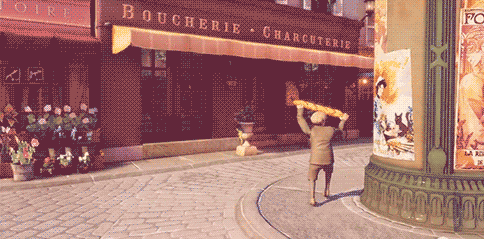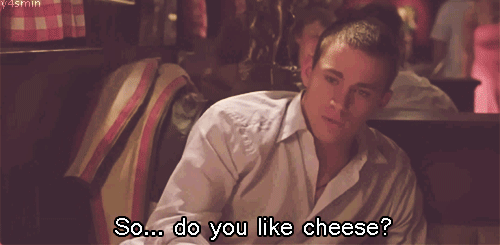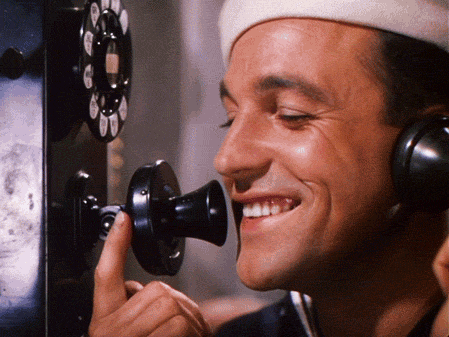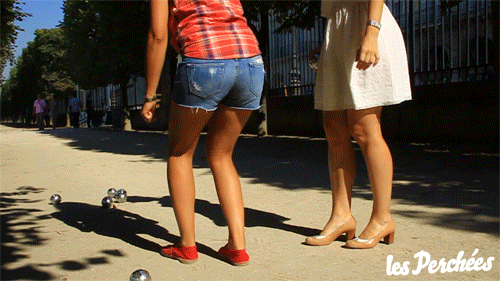
13 Signs You’re an Expat in France
What is living like in France for those coming from abroad? Are you moving to France or simply in for a good read? Find out more about the 13 signs that tell you are an international living in France.
1. Breakfast – Lunch – Dinner
The lifestyle in France is, at least for a Finnish person, in many ways very fascinating and very different. One major every-day-life aspect is eating and food in general. The French tend to eat the tiniest breakfast: a croissant washed down with some orange juice and coffee. Lunch, on the other hand, can be a three-course-meal! I am used to eating a proper lunch so I really like the plat du jour sort of daily menu concept in restaurants. Compared to Finland where the “dinner” is usually eaten around 5pm, it’s been a challenge not to get hungry before 9pm in the evening, the normal dinner time in France. Oh well, eating a heavy meal that late makes you understand the small breakfast and so forth.

2. Boulangerie, charcuterie, fromagerie
The picture of a Frenchman carrying a baguette is not a joke. In France you get accustomed to expecting to find various kinds of food sold separately, and start thinking supermarkets are just the necessary evil. You can always rely on boulangeries in every corner to find freshly baked yummy breads, baguettes, croissants and pain au chocolats, charcuteries for different meat products and cold cuts, and fromageries to offer you a variation of cheeses.

3. Cheese and bread
Before coming to France you think a cheese plate means crackers, grapes and pieces of different cheese. In France you realize that is not the case. You can have grapes and cheese but crackers?! – No way. Cheese is always eaten with bread and you don’t question that (actually, it’s really good that way and I wouldn’t go back to crackers). And also the more mold there is on the cheese, usually the better, but knowing this for sure is a form of art itself, so consider consulting a French person.

4. Cheap wine, good wine?
In Finland you can buy almost any wine in the government owned liquor store and be sure it’s quite good. After all, you pay 10-20€ per bottle. In France you are amazed by the wine selection in every supermarket and small grocery stores, and you’re happy to pay 2-5€ for a bottle of wine you assume is good. Well, it’s OK to buy the cheaper wines but don’t be surprised when your French friends give you a funny look: “You bought wine without a proper cork cork?!”

5. Relaxed way of living
Be prepared to worry about your blood pressure when moving to France, especially if you come from the Nordic countries or Germany or similar very organized (or too organized) cultures. The working week in the south of France seems to be quite relaxed. Monday is almost part of the weekend, so you take it easy. Tuesday and Wednesday you work hard but Thursday is kind of like Friday because on Friday you already have to prepare for the weekend and maybe plan for a family dinner or a Sunday hike. Luckily your colleagues are the same, and sometimes it’s more important to catch up with your friends – customer service is overrated anyway. It’s a fact you learn to accept that most of the offices or agencies (post, library, internet provider…) are not working that efficiently and you realize everything is going to be just fine eventually. Someday. Somehow.

6. Taking care of things the French way
In continuation to the previous point, I might add that there really is a French way of doing things. Libraries, for example, have five employees per department, small banks have three front desks before you even get to talk to your contact person and doctors have assistants. After a while you stop being amazed by the number of people working in offices and agencies and you also realize the number of staff members usually is not the guarantee for efficient service.

7. Call or send a letter, don’t use the internet
In France you want to call to a restaurant /agency/office/town hall to get the latest information on something or make a table reservation. Internet exists but it is not necessarily the place for the latest information. For example online banking is not as easy as you think: before you make a bank transfer to another euro country you have to register the receiver’s bank account in your account first, then confirm that via SMS or a letter.

8. Traffic and parking
You’re no longer surprised of the hectic style of driving or parking of the French. It’s normal to park in an intersection or over a pedestrian crossing – just put on your emergency indicators! Especially if you have to run to a boulangerie to buy a baguette before they run out.

9. You are almost invisible if you don’t speak French
Even though you should be very polite in France, and you should know the basic greetings like bonjour, merci and au revoir, it’s never guaranteed the person serving you will be polite. Yes, the words come out their mouths but their facial expressions are not hiding they are annoyed by you. It’s a nice little play and you’ll get the hang of the script soon. The best way not to be ignored is to learn how to ask “Do you speak English?” in French: Parlez-vous anglais? That tiny phrase works as a brilliant ice breaker, and you will be little less invisible after that 🙂

10. Kissing people you don’t really know
The normal way of greeting people you meet the first time is shaking hands, that’s pretty universal and also works the same way in France. But what happens in France when you meet people for the second or third time? You kiss them. Not on the mouth, no, but gently touch their cheek with yours taking turns, left cheeks, right cheeks, left, right. The number of times you give the bisous to someone depends on the region you live in, and for example, in the south of France it’s usually only two times. After the first shock of letting people enter your personal space and kissing someone you don’t know, you learn to repeat this tradition every single time you meet your friends. Keep in mind that men usually only shake hands unless you are really good friends or relatives.

11. How to make a change? Go on a strike
While living in France you get used to hearing about strikes. This is a little problematic from a Nordic person’s point of view since it seems to get the people nowhere, and it only causes trouble for everyone else in the society. For example, the national railway employees strike quite regularly so you need to be careful not to assume the trains go on time. Also the French post went on a strike when the email got big. True story.

12. Petanque
Petanque, the French gift to the world! It is a charming game where you throw fist-size heavy balls towards a smaller ball in a sandy field somewhere in the middle of the city. The aim is to get your ball the closest to the small ball – sounds simple but it is definitely a sport! When living in France, you start to understand the nuances of the mighty game and even play it yourself. The best part is, petanque is nothing without enjoying some drinks and apero (sort of appetizers) while playing.

13. Nothing is forever, except the subscriptions you make in France
When it is time to leave France you get very sentimental. Where am I going to buy my baguette or Camembert from now on? Who will I play petanque with? Can I not park my car illegally anymore? Despite the emotional rollercoaster you most likely will be on, you still have to arrange all the practicalities. You’ve gone through a lot of trouble of finding the best mobile deals and insurances but what is even harder is the cancellation of these services. Apparently, it is because the French are not that concept oriented and have no one way of dealing with things. Once you’ve dealt with several kinds of agreements and subscriptions (mobile phone, TV, internet, insurance…) in France you learn to take the subscription cancellations into account already when you are making the contracts. At the end of the day not even that is a guarantee you get to cancel or terminate your subscriptions and contracts easily but luckily at this point you have already been accustomed to the French way of living so you manage one way or another and keep saying “c’est la vie” 🙂

Special for ELM – guest blogger Hilla Hoskonen.
© Expertise in Labour Mobility B.V. All rights reserved
